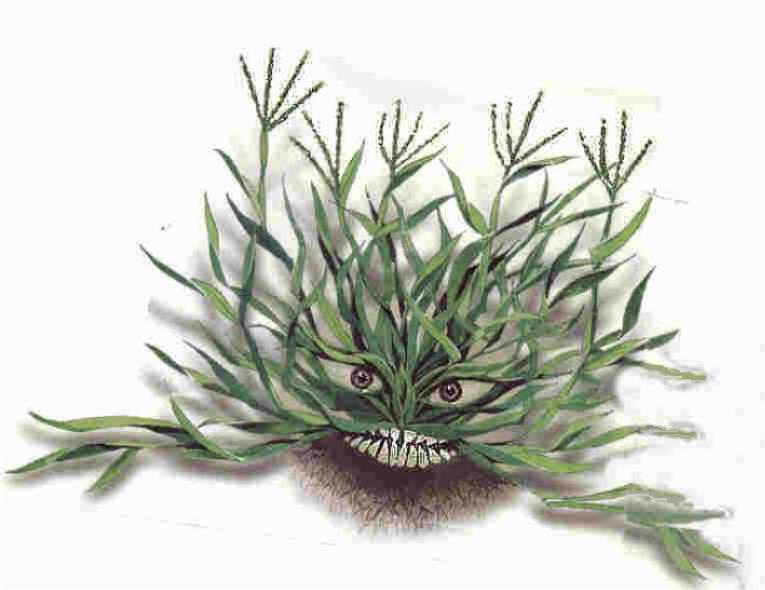|

Many of us avoid gardening. Too many
times, we plant the most beautiful rose bushes, only to have them get blight and
die when we forget about them for a month or so. Our neat geometric garden
designs get holes when a few of the flowers in the pattern die. Our neighbors
start to make comments…..
Done right, gardening can be an ideal
hobby for women with ADHD. After a long day’s work, it feels great to get
outside with a mattock and dig up dirt. It’s a good adult excuse for getting
muddy. If you are the type who impulsively blows up at people, fresh flowers
make a great apology gift. Bringing fresh, blooming flowers to the office, and
arranging them, can provide a centering experience at the beginning of each day.
Darwinian Gardening: Like everything
else, gardening works best if you know yourself. If you are aware that you tend
to be disorganized and inattentive, plan a garden that can accommodate this.
Choose flowers that can survive a little abuse and neglect. If a flower can’t
live where you planted it, it didn’t belong in your garden anyway.
Get to know a couple of the gardening
experts at your local plant nursery. You may be surprised to find that some of
the most beautiful and unusual plants are the hardiest. For example, bleeding
hearts (Dicentra spectablis) make a unique border. Brightly colored German
bearded irises (Iris germanica) are a hardy and fast-spreading flower. Roman
chamomile (Chamaemelum nobile) makes for a great ground cover and blooms with
daisy-like flowers that can also be made into tea. See end of article for more
easy-to-grow plants.
|
Tips for the
Inattentive Gardener
- Avoid geometric designs and
topiaries. Any mistake, weed or dying plant will show up.
- Use an electric drill with
an auger attachment to drill bulb holes. You can do hundreds in a
couple of hours.
- Naturalize. Plant crocuses
randomly in your lawn, and daffodils at the edge of your yard. They
will return year after year with little extra work.
- Plant things that are
native to your area. Nature intended them to be there, and nature
will help you keep them alive. Now your garden is full of “native
plants” not weeds.
- Consider irises, daylilies
and hellebores. Some forms of irises and daylilies will repeatedly
bloom throughout the season. These plants can often tolerate
extended neglect.
- Plant flowers more randomly
instead of grouping them. Yes, this violates standard gardening
principles. However, if you do this, and put your plants close
together, no one can tell if a few weeds are present.
- Some weeds have nice
flowers too.
- Planting from seed can be
tricky. It is easy to forget what you have planted. Sunflowers are
an exception. They are large, dramatic and easy to grow. They are
great to plant over things that have died or have just finished
blooming for the season.
- Make the garden a family
task. If you have the type of garden that requires less weeding and
fussing, the kids are more likely to be enthusiastic.
- If the kids are to help,
avoid some of the more toxic sprays and herbicides. Using corn
gluten on your garden as a pre-emergent weed killer may avoid the
use of more toxic sprays. Horticultural/castor oil can help control
moles and several varieties of insects. Pepper Wax, capsaicin, found
in hot peppers, repels insects.
- Consider the use of
landscape fabric and mulch when you plant your garden this will cut
down on the need for weeding.
- Spraying plants with
Miracle Grow, diluted with water, can bring many plants back from
the brink of death.
- Benches and all-weather
sculptures can beautify your garden and they will not ever die.
- Use your periodic bursts of
energy to do the regular maintenance tasks such as fertilizing and
mulching. These tasks don’t always have to be done when everybody
else does them.
|
|
More
easy-to-grow plants
Consider the
following plants for your garden: Perennial lilies (including
daylilies (Hemerocallis) toad lilies (Tricyrris hirta) and Asian
lilies. Lilies are beautiful, sometimes reblooming and require
little maintenance. Hostas are a great way to fill in shady
borders quickly with large, vibrantly green foliage. Musk
Mallow, also called hardy hibiscus, have large, dramatic flowers
in a variety of colors from blue to white to fiery red. Peonies
produce large, dramatic flowers in the spring. They grow quickly
and the roots can be easily divided so that you have multiple
plants. Periwinkle (Vinca minor) is a rapidly growing, low
maintenance ground cover for shady areas.
Revised
December 2004
|
|
Search Our Site by Key Words
Northern
County Psychiatric Associates
Offices in Monkton and Lutherville,
Maryland
|

